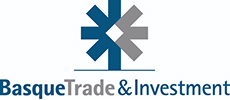Russia
The Russian invasion of Ukraine completely altered the Basque Country’s trade relations with Russia, a country with which Basque companies had a smooth trade relationship particularly as a supplier of raw materials and steel products. The EU sanctions in response to the attack on Ukraine have meant that Basque business has had to restructures its supply chain in those sectors in which Russian raw materials and steel products were widely used. Trump taking up the US Presidency may change the outcome of the war in Ukraine and, therefore, alter the current trade sanctions on this country.
A key player in international trade
Russian is one of the largest markets in the world, with a highly trained workforce and an abundance of natural resources and raw materials. Even with the conflict in Ukraine and the EU and US sanctions, Russia has managed to improve its international relations, and is an indispensable partner of many Latin-American, African and Asian countries, which make it an indispensable country in international trade. Its alliance with China is expected to keep its key industries in growth.
BASQUE TRADE & INVESTMENT RUSIA
* Office hours:
Monday to Thursday: 7.30 a.m. to 4.00 p.m.
Fridays: 8.00 a.m. to 1.00 p.m.

